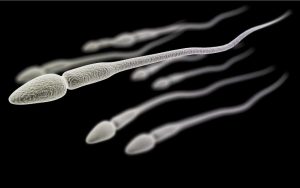After trying hard, charting out ovulation periods, and having regular sexual intercourse; many couples are still unable to conceive despite not having any medical issues related to their fertility. In fact, over the past couple of decades, fertility problems have increased dramatically, pointing to the possibility that somewhere in this modern lifestyle, something is not right.
Miscarriages too are on the rise. Could the problem (and remedy) be in our food choices?
What are the causes of infertility?
From a medical point of view, infertility is believed to be caused by the following factors, and in these proportions:
Ovulatory failure (including Polycystic Ovary Syndrome): 20%
Tubal damage: 15%
Endometriosis: 5%
Male problems: 26%
Unexplained: 30%
If the above doesn’t seem to add up, it may be because many couples experience more than one problem when trying to conceive: for example, you may suffer from endometriosis, but your partner may also have a low sperm count.
Interestingly, the most common cause of infertility is ‘unexplained’, which means that following thorough investigations, doctors can find no specific or identifiable medical problem. Still, if a couple fails in their bid to get pregnant, there is something causing the problem. There is absolutely no harm in looking deeper – at lifestyle factors, nutritional deficiencies, and even emotional elements, even.
What are your choices?
The natural approach to fertility is and has been enormously successful, largely because fertility is multifactorial, meaning that many, many elements can be at the root of your fertility problems. Numerous studies have brought up that couples struggling with infertility had an 80 percent success rate when they included proper supplements to their diets and changes were made to their lifestyles. Given that the success rate for IVF itself is only around 25%, it seems worth it considering more natural options.
Preconception care
Remember that it takes at least three months for your eggs to mature enough to be released during ovulation. It also takes at least three months for sperm cells to develop, ready to be ejaculated. This means that when you are trying to improve your fertility, you need to have three months before conceiving. This is called ‘pre-conception care’ and it’s as important to take as much care during this period as it is during pregnancy itself.
Steps to increase your chances of conceiving
If you are going for IVF treatment or another assisted conception procedure, you should follow these recommendations in order to increase the chances that the procedure will work.
Pay attention to your diet
If you’re trying for a baby, it goes without saying that a healthy diet is crucial to a successful pregnancy and a healthy baby. The fact is, your diet can help to correct hormone imbalances that may affect your ability to conceive. Some certain foods and drinks are known to lower fertility. They are:
Alcohol: Alcohol consumption has been known to reduce your fertility by half – and quite simply, the more you drink, the less likely you are to conceive. Research has also shown that drinking alcohol causes a decrease in sperm count, an increase in abnormal sperm, and a lower proportion of motile sperm. Alcohol also inhibits the body’s absorption of nutrients such as zinc, which is one of the most important minerals for male fertility.
In order to give yourself the best possible chance of conceiving, try eliminating alcohol from your diets for at least three months before trying for a baby.
Caffeine: There is plenty of evidence to show that caffeine, particularly in the form of coffee, decreases fertility. Drinking as little as one cup of coffee a day can halve your chances of conceiving and just two cups a day increases the risk of a miscarriage. One study showed that problems with sperm: sperm count, motility and abnormalities, increase with the number of cups of coffee consumed each day. Once again, it’s important to eliminate all caffeine-containing food and drinks for at least three months before trying to conceive. That includes colas, chocolate, black teas, and coffee, among other things.
Xenoestrogens: When you are trying to conceive, one of the most important things you need to do is to balance your hormones. It is extremely important to avoid anything that might cause an imbalance, and one of the main culprits is the xenoestrogens, which are essentially environmental estrogen, coming from pesticides and the plastic industry. One of the best ways to eliminate an excess intake of xenoestrogens is to eat as much organic produce as possible for the preconception period.

Take supplements!
Certain supplements can be very effective in re-balancing your hormones, as well as improving one’s overall health to increase the chances of successful conception. They are necessary because even the best diet in the world may not contain all the nutrients you need to give you the best chance of conceiving. By eliminating nutritional deficiencies you can dramatically increase your chances of getting pregnant. In order to do this it is essential that you are obtaining the right nutrients and in the right quantities to enhance your success.
Folic Acid
Folic acid has been proven to prevent spina bifida in an unborn baby, and it is essential that you get plenty both before and during pregnancy. Folic acid is part of the very important B-complex family of vitamins that are necessary to produce the genetic materials DNA and RNA, not only of the egg but also the sperm. Together with vitamin B12, folic acid works to ensure that your baby’s genetic codes are intact.
Zinc
A zinc deficiency can cause chromosome changes in both men and women, leading to reduced fertility and an increased risk of miscarriage. Zinc is necessary for your body to ‘attract and hold’ the reproductive hormones, oestrogen, and progesterone.
Zinc is found in high concentrations in the sperm and is needed to make the outer layer and tail of the sperm. A deficiency may also lead to reduced sperm count.
Selenium
Selenium is an antioxidant that helps to protect your body from highly reactive chemical fragments called free radicals. For this reason, selenium can prevent chromosome breakage, which is known to be a cause of birth defects and miscarriages. Good levels of selenium are also essential to maximise sperm formation. Blood selenium levels have been found to be lower in men with low sperm counts.
Omega 3 Fatty Acids
These essential fats have a profound effect on every system of the body, including the reproductive system and they are crucial for healthy hormone functioning. Omega 3 fatty acids also control inflammation which may interfere with getting and staying pregnant. For men, essential fatty acid supplementation is crucial because the semen is rich in prostaglandins which are produced from these fats. Men with poor sperm quality, abnormal sperm, poor motility or low count, have inadequate levels of these beneficial prostaglandins.
Vitamin C
One study has shown that women taking the drug clomiphene to stimulate ovulation will have a better chance of ovulating if vitamin C is taken alongside the drug. Clomiphene does not always work in every woman, but the chances are often increased when vitamin C is supplemented.
Studies show that vitamin C also enhances sperm quality, protecting sperm and the DNA within it from damage. Some research has indicated that certain types of DNA damage in the sperm can make it difficult to conceive or it can cause an increased risk of miscarriage if conception does take place. Vitamin C also appears to keep the sperm from clumping together, making them more motile.
Beta-Carotene
This is the vegetable precursor to Vitamin A and is completely safe during pregnancy. Beta-carotene is a powerful antioxidant that helps to protect egg and sperm DNA from damage by harmful free radicals which can affect the quality of both the egg and sperm.
L-Arginine
This is an amino acid found in many foods and the head of the sperm contains an exceptional amount of this nutrient, which is essential for sperm production. Supplementing with L-arginine can help to increase both sperm count and quality.
L-Carnitine
This amino acid is essential for the normal functioning of sperm cells. According to research, it appears that the higher the levels of L-Carnitine in the sperm cells, the better the sperm count and motility.


